Before I begin, I want to point out that I can solve my problem. I've rehearsed enough in PHP to be able to get a workaround to what I'm trying to do. However I want to make it modular; without going too much into detail to further confuse my problem, I will simplify what I am trying to do so that way it does not detract from the purpose of what I'm doing. Keep that in mind.
I am developing a simple CMS to manage a user database and edit their information. It features pagination (which works), and a button to the left that you click to open up a form to edit their information and submit it to the database (which also works).
What does not work is displaying each row from MySQL in a table using a very basic script which I won't get into too much detail on how it works. But it basically does a database query with this:
SELECT * FROM users OFFSET (insert offset here) LIMIT (insert limit here)
Essentially, with pagination, it tells what number to offset, and the limit is how many users to display per page. These are set, defined, and tested to be accurate and they do work. However, I am not too familiar how to handle these results.
Here is an example query on page 2 for this CMS:
SELECT * FROM users OFFSET 10 LIMIT 10
This should return 10 rows, 10 users down in the database. And it does, when I try this command in command prompt, it gives me what I need:

But when I try to handle this data in PHP like this:
<?php
while ($row = $db->query($pagination->get_content(), "row")) {
print_r($row);
}
?>
$db->query method is:
public function query($sql, $type = "assoc") {
$this->last_query = $sql;
$result = mysql_query($sql, $this->connection);
$this->confirm_query($result);
if ($type == "row") {
return mysql_fetch_row($result);
} elseif ($type == "assoc" || true) {
return mysql_fetch_assoc($result);
} elseif ($type == "array") {
return mysql_fetch_array($result);
} elseif ($type == false) {
return $result;
}
}
$pagination->get_content method is:
public function get_content() {
global $db;
$query = $this->base_sql;
if (!isset($_GET["page"])) {
$query .= " LIMIT {$this->default_limit}";
return $query;
} elseif (isset($_GET["page"]) && $_GET["page"] == 1) {
$query .= " LIMIT {$this->default_limit}";
return $query;
} elseif (isset($_GET["page"])) {
$query .= " LIMIT {$this->default_limit}";
$query .= " OFFSET " . (($_GET["page"] * $this->default_limit) - 10);
return $query;
}
}
And my results from the while loop (which should print out each row of the database, no?) gives me the same row everytime, continuously until PHP hits the memory limit/timeout limit.

Forgive me if its something simple. I rarely ever handle database data in this manner. What I want it to do is show the 10 users I requested. Feel free to ask any questions.
AFTER SOME COMMENTS, I'VE DECIDED TO SWITCH TO MYSQLI FUNCTIONS AND IT WORKS
// performs a query, does a number of actions dependant on $type
public function query($sql, $type = false) {
$sql = $this->escape($sql);
if ($result = $this->db->query($sql)) {
if ($type == false) {
return $result;
} elseif ($type == true || "assoc") {
if ($result->num_rows >= 2) {
$array;
$i = 1;
while ($row = $result->fetch_assoc()) {
$array[$i] = $row;
$i++;
}
return $array;
} elseif ($result->num_rows == 1) {
return $result->fetch_assoc();
}
} elseif ($type == "array") {
if ($result->num_rows >= 2) {
$array;
$i = 1;
while ($row = $result->fetch_array()) {
$array[$i] = $row;
$i++;
}
return $array;
} elseif ($result->num_rows == 1) {
return $result->fetch_array();
}
}
} else {
die("There was an error running the query, throwing error: " . $this->db->error);
}
}
Basically, in short, I took my entire database, deleted it, and remade another one based on the OOD mysqli (using the class mysqli) and reformatted it into a class that extends mysqli. A better look at the full script can be found here:
And yes, it does what I want it to. It queries multiple rows, and I can handle them however I wish using the very same methods I planned to do them in. Thank you for the help.